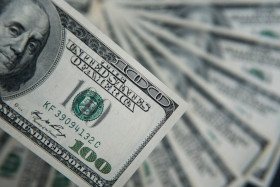The US dollar is taking a breather midweek following a strong session on Tuesday, driven by strong economic data that left investors feeling ebullient. A string of housing numbers did come out, but the market did anticipate weakness in the sector, which could adjust tradersâ minds about the worldâs largest economy being on solid footing.
It has been a rough year for the national real estate market, and the mortgage applications data reflects that. In the week ending July 12, mortgage applications dropped 1.1%, up from a 2.4% decline in the previous week, reports the Mortgage Bankers Association (MBA).
The same report also found that the 30-year mortgage rate came in at 4.12%, up from 4.04% in the previous week.
According to the Bureau of Economic Analysis (BEA), June retail sales advanced for the fourth consecutive month as they rose 0.4%. The market had expected just a 0.1% gain. This pointed to a sharp rebound in consumer spending in the second quarter following a dismal trend in the previous quarter.
Since the US is a consumer-driven economy, investors pay close attention to these types of reports.
Online retailers experienced the biggest gains last month, enjoying a 1.7% jump in sales. This was followed by higher sales at restaurants, supermarkets, furniture stores, apparel, home improvement retailers, and pharmacies. There were declines in department and electronics store of 1.1% and gasoline station receipts tumbled 2.8%, mainly because the average cost of a gallon of gasoline slipped from $2.82 in May to $2.65 in June.
Overall, consumers are confident in their spending patterns because of positive economic conditions: the labor market keeps adding jobs, layoffs are near all-time lows, incomes are increasing, and interest rates are expected to come down again.
In other data, export prices fell 0.7% and import prices tumbled 2%. Industrial and manufacturing output recoded lower-than-expected gains of 1.3% and 0.4%, respectively. US net Treasury international capital flows had a huge June as overseas investors purchased $32.9 billion in American assets, which is important because it shows that the US is still attracting foreign investors.
All of these positive figures are unlikely to dissuade the Federal Reserve from cutting interest rates. The central bank has been adamant about imposing at least one 25-basis-point cut in rates this year, with much of the market penciling one in at the end of the month.
The US Dollar Index is down 0.08% at 97.32, which comes after an incredible 0.5% gain on Tuesday.
The USD/CAD currency pair fell 0.2% to 1.3063, from an opening of 1.3089, at 12:04 GMT on Wednesday. The EUR/USD edged up 0.08% to 1.1219, from an opening of 1.1211.
If you have any questions, comments, or opinions regarding the US Dollar, feel free to post them using the commentary form below.
US Dollar Takes a Breather After Strong Data Sparks Rally
